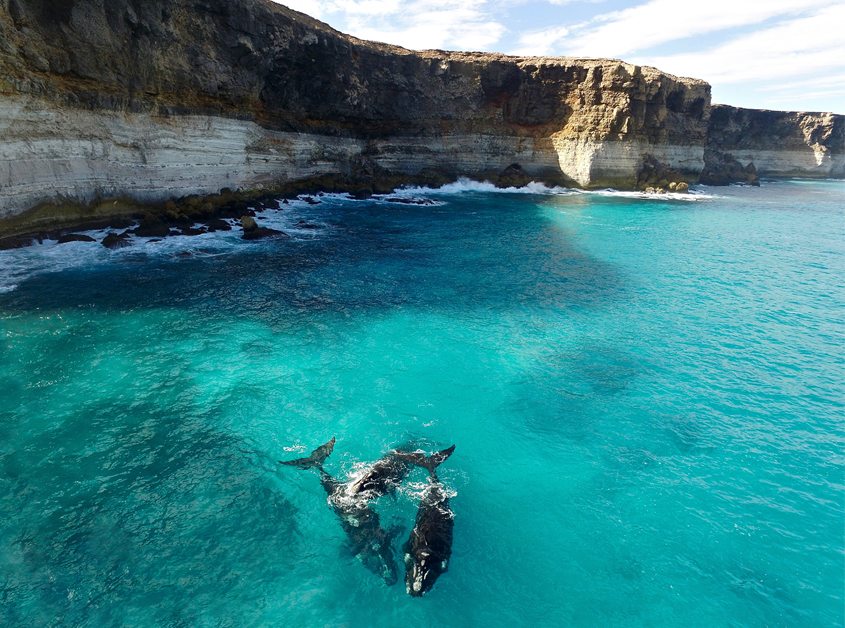The Montara blowout is considered one of Australia’s worst environmental disasters.

The Montara blowout is considered one of Australia’s worst environmental disasters and it should serve as a warning to those who think drilling in the Bight is a risk worth taking.
In 2009, 220km off the coast of WA an oil rig caught fire and leaked crude oil into the Timor Sea for 74 days causing a 90,000 square kilometre oil slick that reached all the way to Indonesia.
Yet unlike other offshore oil spills, such as Exxon Valdez in Alaska or Deepwater Horizon in the Gulf of Mexico, some Australians have never heard about the Montara disaster.
The company responsible was PTT Exploration and Production (PTTEP) Australasia. Now, ten years later, they’re before the Federal Court of Australia fighting a class action brought by more than 15,400 Indonesian seaweed farmers.
The farmers are seeking $200 million in compensation for the devastation the spill caused, that killed their crops and left their economy an estimated $1.5 billion worse off, every year since the disaster.
Their loss of livelihood serves as a timely reminder that the consequences of an oil spill inevitably go beyond the deaths of charismatic marine life. Seabirds and whales are not only victims, but their suffering is perhaps the most visible of many impacted groups.
It’s also a wake up call for all Australians that points to another huge, yet surprisingly quiet issue, that poses a very real threat to our entire southern coastline, its unique wildlife, and the livelihoods of thousands in communities that rely on it for fishing, tourism, and cultural connection.
While one foreign oil company fights to avoid compensating the farmers, whose lives it devastated almost ten years ago, another international oil giant, Equinor, is planning to drill an extreme, ultra-deepwater oil exploration well to a depth of 2,239 metres in the Great Australian Bight.
In comparison, the Montara oil spill, occurred at a shallow water depth of about 75 metres.
Furthermore, the waters of that part of the Timor Sea are still as a lake compared to the notoriously hostile waters of the Bight, which are battered by Southern Ocean swells of Antarctic origin and are whipped by the heavy winds of the roaring forties.
The only deepwater well ever attempted in the Bight, Woodside’s 2004 project, dubbed Gnarly Knots, was abandoned due to harsh weather.
Oil giants BP and Chevron planned their own attempts in recent years, but gave up on the projects amid a wave of community opposition.
About 85 percent of species that make up the Great Australian Bight’s vibrant ecosystem exist nowhere else on our planet Earth. It provides more than a quarter of the value of Australia’s seafood production, with our undisputed seafood capital, Port Lincoln, right in the middle of the Bight and the spill zone.
Equinor’s own modelling shows hundreds of communities could be impacted by an oil spill – the area at risk stretches from WA to northern NSW. A worst-case scenario spill, depending on the prevailing currents, could engulf Tasmania’s World Heritage coastline and possibly even reach as far as New Zealand.
Experts have warned that mounting a cleanup attempt could cost $125-223 billion, take decades, and only hope to recover 10 percent of the oil at best.
Reimagine your most treasured coastal memories, smeared with oil. It’s a future none of us want.
Unfortunately, for our close neighbours in Indonesia, it’s a nightmarish reality their seaweed farmers can’t wake up from.
Lawyer Ben Slade from Maurice Blackburn, the law firm representing the farmers, put it best when he said of the Montara oil spill: “any enormous activity presents dangers to the environment.”
“If it’s not managed extraordinarily carefully, with many controls, things can go wrong. But something can go wrong, always, and it’s not okay to say, ‘it wasn’t foreseeable that our messing up stuff would cause damage’. It does cause damage, huge amounts of damage, and a lot of unhappiness.”
If successful, the Montara oil spill would be one of Australia’s largest class action settlements.
The fishing communities of the Bight should take note of the seaweed farmers’ decade long battle for compensation. Perhaps the only givens in extreme oil projects are that spills will occur, and the oil companies will inevitably fight any attempts to be held to account.
Accidents at oil facilities in Australia are rising, as they are globally. In this cowboy industry, another big accident is inevitable – it’s simply a matter of where, when, and how bad it is.


